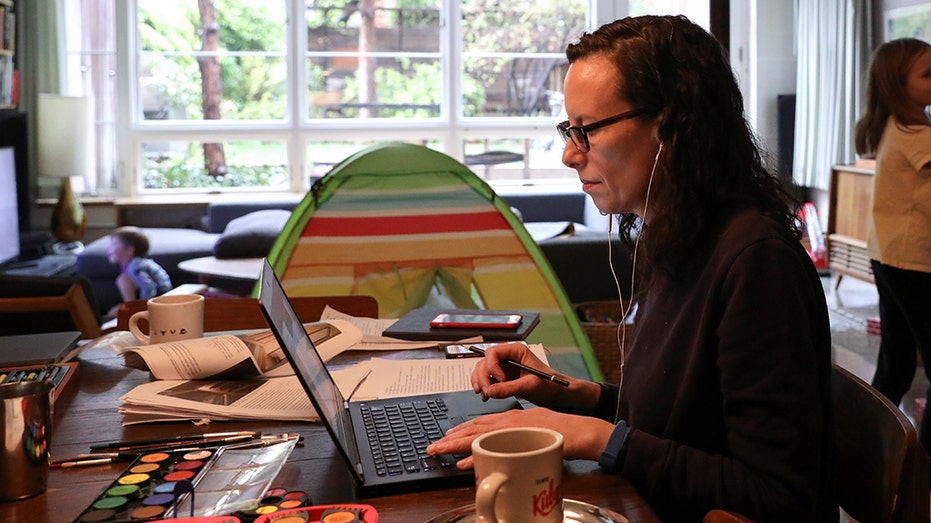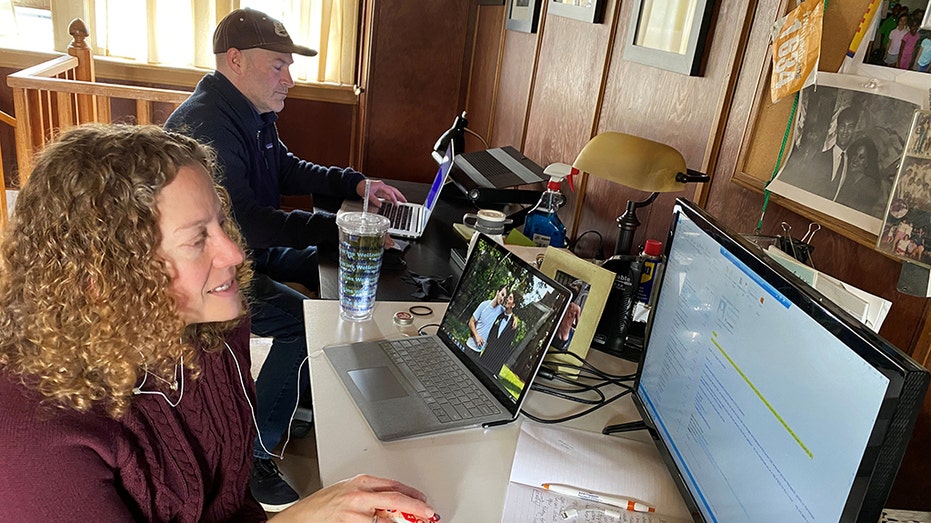Should you use your paid time off during coronavirus?
Employees are using less vacation days during coronavirus -- and how much it could cost companies
Employees are working through vacation days.
The out of office message has become obsolete for some workers who are privileged to work during the coronavirus pandemic with travel restrictions and stay-at-home orders in place as many employees forgo vacation, take on more work or clock in ample hours instead.
Ashley Asres, 31, an associate at a New York private equity firm, can relate. She went from working at the office at 10 a.m. to logging in two hours early and working through her commute time instead. And with her three separate trips canceled for the year because of COVID-19 related shutdowns, she has nearly three weeks of unused paid time off.

Americans who are able to work from home are using less paid time off during the COVID-19 pandemic. (REUTERS/Caitlin Ochs - RC2BBG9JN83Z).
“My husband and I are both very lucky and grateful to still have our full-time jobs … Working at home is not the worst thing, but I do find myself having longer workdays because I'll log in earlier or work later at night, so it's easy to feel burnt out especially when you add everything going on in the world,” Asres told FOX Business Tuesday.
She’s not alone. The average workday for employees working from home in the United States went from eight hours to 11 hours a day, a 40 percent increase and the biggest jump compared to any other nation, according to data from digital privacy company NordVPN.
FOUR DAY WORK WEEKS ARE BETTER FOR BUSINESS, MICROSOFT FINDS
Asres said her boss recently sent her team an email encouraging them to use their vacation days since it's unclear when they will be back in the office. Now, she’s considering it, even if it's just a day.
“Before receiving that email, I hadn't given much thought to using my vacation days during this crisis, given that I can't really go anywhere and it felt weird requesting time off,” Asres said.
With millions of Americans filing for unemployment because of record layoffs nationwide, those who are still employed likely may not be able to afford to take time off, considering nearly 25 percent of workers in the United States do not get paid time off, according to the Center for Economic and Policy Research.
And before the COVID-19 crisis broke out, 55 percent of Americans reported they didn’t use all of their paid vacation time, according to research released by the U.S. Travel Association from 2019. And that percentage is likely to go up as more people work from home and with essential workers on-call daily.
But when employees don’t take time to reset, it could end up costing companies more in the long run. Studies show that employee burnout can lead to lost productivity amounting to between $125 billion and $190 billion a year in healthcare costs as researchers estimate that work-induced stress makes up 8 percent of national spending on healthcare, according to the Harvard Business Review.

A couple, Mark Berkley and Susan Halper Berkley, working from home due to coronavirus restrictions in Maplewood, New Jersey, U.S. March 18, 2020. (REUTERS/Barbara Goldberg).
“For millions of Americans, juggling remote work, childcare, financial fears, and the uncertainty about the future has made daily life even more difficult and not taking a vacation could lead to quicker burnout,” Leigh McInnis, a licensed professional counselor and executive director of Newport Academy in Virginia, a therapy program for adolescents with mental health or addiction issues, told Fox Business, adding: “Taking some time away from work, be it a day or longer, can allow one to restore mental energy and return to work with a fresh and more relaxed perspective and can generally lead to a happier, more productive employee,”
HOW TO FIND REMOTE WORK AMID CORONAVIRUS UNEMPLOYMENT
Asres said she plans to take a day off to sit outside when the weather gets nice and encourages others to practice self-care when they can as needed.
“It's easy to get stuck in this routine of waking up, logging on and sitting at your computer all day, so I am looking forward to taking a day off in the near future when the weather is nice and I plan to sit outside all day and enjoy some fresh air. It's not the vacation we had planned, but it will do for now,” she said.
CLICK HERE TO READ MORE ON FOX BUSINESS




















